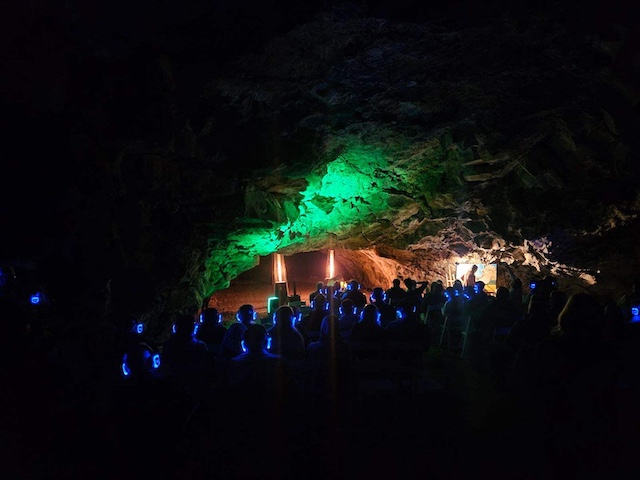A soldier survives, and so does a cover-up
Published 12:00 am Tuesday, April 7, 2015
Casting directors are the quartermasters of the TV and movie industries — there’s not a lot of glory or recognition for their work, but it’s vital nonetheless.
Salah Benchegra, for instance, was instrumental in making “American Odyssey,” an NBC series that began Sunday, as good as it is. That’s because it was Benchegra, a Moroccan casting director, who found Omar Ghazaoui, a 14-year-old schoolboy with no acting experience, in Erfoud, a small Moroccan town. Benchegra sensed that the youngster could play Aslam, a boy from a village in Mali who befriends and abets Sgt. Odelle Ballard (Anna Friel), an American soldier on the run in enemy territory.
Even without Aslam, “American Odyssey” would hold its own; it’s an exhilarating thriller that pits a disparate group of people against an insidious military-industrial conspiracy. But it’s the unlikely affinity between a stern, pious Muslim teenager and the captive female American soldier he is instructed to guard that gives this high-octane action-adventure drama a special charm.
And Aslam, especially, a boy raised under the most traditional rural customs and restrictions, is an unusual hero for television: He is an obedient son with a mind of his own. Aslam might also have hidden sympathy for people held against their will — in his spare time, he repeatedly reads “Harry Potter and the Prisoner of Azkaban.”
As the title suggests, “American Odyssey” focuses on Ballard and her struggle to return home, but it’s told somewhat in the style of the movie “Traffic,” interweaving the stories of characters whose trajectories sometimes cross but mostly spin forward along parallel lines.
When the story begins, Ballard, who speaks Arabic, is the translator for a Special Forces team sent to Mali to track and kill a top terrorist commander. On the terrorist’s laptop, Ballard finds puzzling files that suggest that an American corporation is transferring funds to terrorist organizations.
Once their top-secret mission is completed, the soldiers expect to be extracted by the military, but instead mercenaries working for Osela, a Blackwater-like military contractor, swoop in and confiscate the laptop. Later, the Osela men return and bomb Ballard’s entire team. The world is told that jihadis wiped out all the Special Forces heroes. By a fluke, Odelle survives the attack, and she is the only witness.
Friel is intense, tough and touching as a woman determined to return to her husband and daughter — and as a soldier seeking to avenge her murdered comrades. And Ballard doesn’t know it, but she isn’t the only person in the world who suspects that American traitors ordered the attack.
While Ballard makes her way through the desert, Peter Decker (Peter Facinelli), a former U.S. attorney, is settling into a new house in Scarsdale, New York, and a new job at a corporate law firm. Assigned to work on a major merger, Decker stumbles across payments in the client’s paperwork that point to malfeasance and a cover-up. Even though he is now being paid to finesse the law, not enforce it, Decker can’t resist digging deeper.
Near his office, there are daily demonstrations protesting various forms of economic injustice. One of the demonstration’s leaders is Harrison Walters (Jake Robinson), a political activist with a famous father and a trust fund. With the help of an eccentric hacker, Bob Offer (Nate Mooney), he uncovers evidence that the government is lying and that Ballard survived the attack.
“American Odyssey” isn’t breaking new ground, exactly. There are a number of dramas at the moment that revolve around a strong woman on the front lines of the war on terror — and homegrown conspiracies. “Homeland” is one, but there are newer variations. The heroine of “Madam Secretary” is a principled secretary of state who has to deal not just with enemies overseas but also traitors nearer by. And “State of Affairs” is about the president’s national security briefer, who battles terrorists in the field and enemies from within.
The villains almost inevitably turn out to be government officials in league with business tycoons, and their schemes are often the least imaginative part of these kinds of stories. But a conspiracy is the MacGuffin that keep characters in peril and the plot in motion.
That’s true of “American Odyssey” as well, but this show still stands out. It’s faster-paced and more sophisticated and unfolds like a movie. It also looks like one. Many scenes were shot on location in Morocco, and the cinematography is striking and at times almost David Lean-like, especially shots of nomads trudging through desert sands on a pilgrimage to Timbuktu.
Most of all, “American Odyssey” is a portrait of an unusual alliance between putative enemies who bond as they flee treacherous friends.






